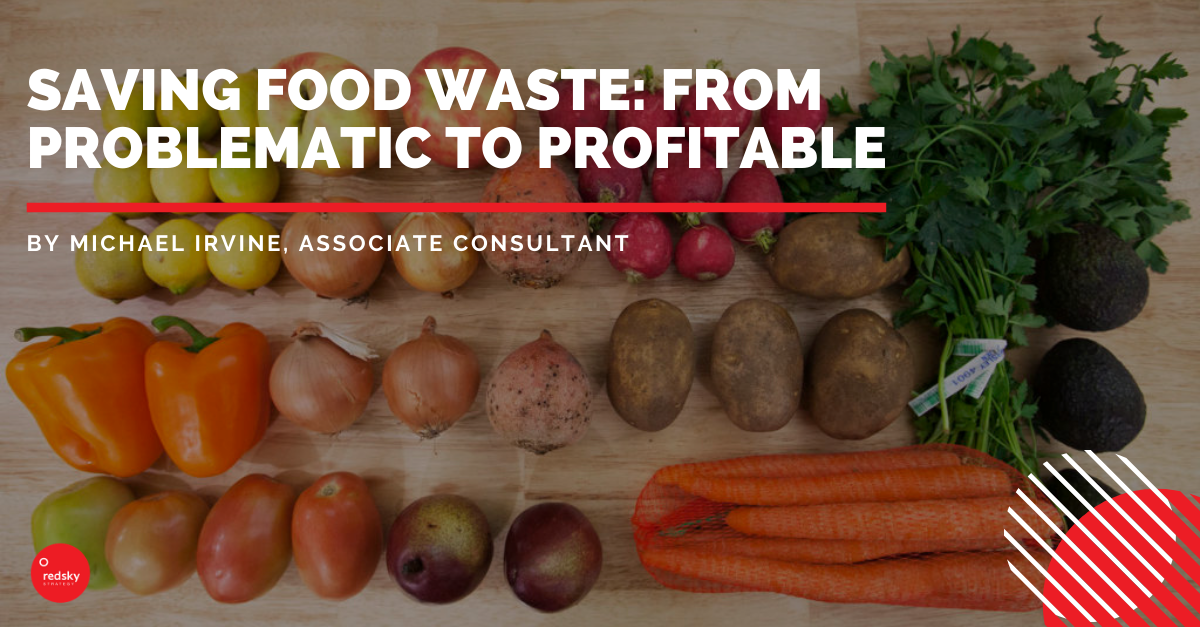News
Saving Food Waste: From Problematic to Profitable

By Michael Irvine, Associate Consultant
My mother has been a chef for nearly 40 years. She has done everything from leading commercial kitchens in fine dining establishments, to catering private events, to leading programs and initiatives to grow upscale grocery stores. As she approaches the back end of her career, and as my hobby as an avid cook becomes more prominent as a young adult, I’ve begun to really pick her brain about her time in the industry. Recently, we had a conversation about some of the things that have remained constant in the culinary world. While different issues trend at different times in the food and beverage industry, the one constant since the beginning of her career has been the issue of food waste. The issue persists even in an increasingly solutions focused, data-driven and technologically advanced world.
Every year in the United States, the commercial food industry wastes $218 billion dollars worth of food (around 50 billion pounds)! While this figure alone is alarming, what is more alarming is that economists have estimated that it would only cost $36 billion annually to solve world hunger globally. Or stated differently, 17% of the amount of food that is wasted annually in the US. Nevertheless, this food is harvested, packaged, shipped, and distributed only to be thrown away and sent to a landfill, never to be consumed by those who potentially need it. Luckily, others have seen this figure and have decided to take action and reverse this trend of waste. Companies in this emerging market have found a way to craft a business model that manages food waste while making it profitable at the same time. Here are 4 companies that are changing the world by mitigating food waste:
- Del Monte Foods is a giant in the fruit and vegetable produce space, Del Monte has prided itself on its vertically integrated growing process that has allowed them to create a sustainable harvest of food. Since 2007, they have diverted around 64% of waste from reaching landfills and continue to improve the process in order to exceed this figure.
- Misfits Market is a produce delivery service that takes produce with impurities straight from farmers and delivers it to your door for half the price of what it would be in a grocery store. Unlike other food waste companies who have focused on very specific areas of service, Misfits aims to deliver to every zip code in the US in three business days or less.
- Imperfect Foods delivers their products from a wide variety of avenues. While they focus largely on products with cosmetic imperfections, they also save food from companies with surplus/excess inventory, products with outdated packaging, and items that could potentially be stranded in warehouses past their expiration date.
- Apeel is a company innovating food waste solutions by helping extend the lifespan of produce itself with a plant-based protection. This edible, tasteless coating allows produce to stay fresh and nutritious for longer which also helps save food waste across the supply chain.
These are a few examples of companies successfully working to solve a serious food problem impacting the supply chain and people all over the world. As is the case when solving any complex problems, from food waste and sustainability to creating shifts in consumer perception and behavior, (like buying “ugly fruit”), aligned partners can help take the proverbial work off your plate. If you find a need for outside support and partnership to reach your business goals, we’re here for you. We at RedSky Strategy are fluent in complexity. We use HumanSight™ to assist companies in emerging markets like these to solve some of the world’s toughest problems. If you want to learn more about how we can help grow your business for a sustainable future, please drop us a message. We’d love to help.
Works Cited
